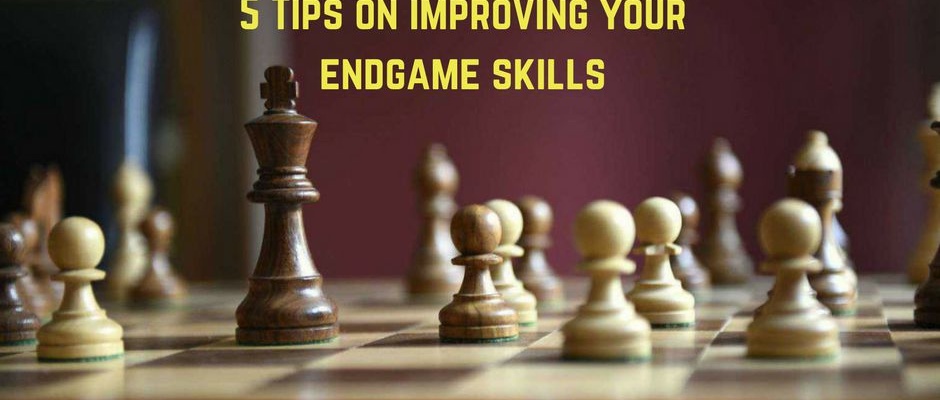5 Tips on improving your endgame skills
In order to improve your game, you must study the endgame before everything else. For whereas the endings can be studied and mastered by themselves, the middle game and opening must be studied in relation to the end game” – Jose Raul Capablanca
Endgame is a stage that requires a different mode of thinking. The pace of play varies, but the practical aspects can be learnt through practice of general guidelines and principles aided with the knowledge of theoretical endings and precise calculation whenever needed.
In this article, I will share ideas on how to improve your endgames using different techniques.
1. Know the fundamentals
These guidelines will keep your basics in check and help you in avoiding mistakes:
- King is an active piece in the endgame, Use it.
- Do not rush! Patience is the key in endgames. Remember Lasker’s SYOH ( Sit On Your Hands )
- The seventh rank is considered as the heaven for the rooks.
- Rook is best placed behind the passed pawn.
- If you are up in material, exchange pieces. If you are down in material, exchange pawns.
- Passed pawns should be blockaded by a knight or a king.
- Practice prophylaxis, trace your opponent’s ideas and resources.
- Improve the worst-placed piece.
- Opposite colored bishops favor the attacking side. Generally, you need two passed pawns for a win in OB endgames.
- Botvinnik said that the knight endings are like the pawn endings.
- The principle of second weakness is an important theme.
- Zugzwang, Triangulation and Pawn breaks are powerful and the most common themes in endgames.
- Avoid playing for the gallery.
- Calculate and incorporate thinking in schemes.
- It isn’t over until it is over.
2. Know the theory:
Some endgame positions must be learnt by heart! There is no other choice. Dvoretsky’s Endgame Manual is an universal endgame bible for endgames. For those who find it too heavy, refer Jesus De La Villa’s 100 Endgames you must know. Silman’s Complete Endgame course is instructive too! All you need is the will to study the endgames. Go, make some time for the study of theoretical endgames!
If you don’t have a handy list of theoretical endgames, then refer Axel Pump’s list:
www.qualitychess.co.uk/ebooks/PumpUpYourRatingEndgames.pgn
3. Know the classics:
There are a lot of key games that illustrate the importance of specific topics. For example, Saidy vs Fischer – shows how a knight could dominate against the bishop. Shereshevsky’s books on Endgame, Larso Bo Hansen’s Secrets of Endgame strategy could be a good starting point to acquaint yourself with classical endgames. It is a great joy to play through the games of Smyslov, Andersson, Karpov, Kramnik and Magnus Carlsen. Of course, the list goes on! But, these names top the list in my list of personal favorite endgame champions.
I share two endgames for your learning:
The first one shows the dynamics between a knight and a bishop. The second one involves thinking in schemes in a same colored bishop endgame:
Endgame 1
Endgame 2
4. Know the Technique:
I developed a liking for endgames after playing out practice positions against my friends. Playing out the positions seriously will improve your:
- Technique
- Understanding the potential of pieces
- Calculation
There was a phase in my life where I failed to convert many winning positions in a row. During that period, I used the endgames of Kramnik, played them out against my friend and got a little better.
Play out the following positions with your friend/computer. You could also use endgames from your own games to extract the maximum from your game:
5. Know yourself
After all the groundwork to build your understanding, it is important to analyze the endgames from your own games. They will help you in:
- Understanding specific weaknesses
- Building upon strength
- Expanding your knowledge and feeling for the positions
It is also vital to study the structures of the openings you play. Incorporating the study of structures in your chess sessions will help you in making decisions during the game.
Game continuation of the practice positions:
I hope the tips have motivated you to start studying the endgames. Don’t fret over endgames, study them and get better at them!


Nice Explaination